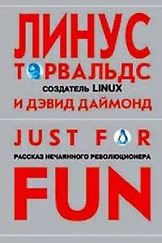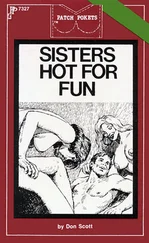And maybe not so surprisingly, the proponents of stricter intellectual property laws are the organizations that stand to gain the most. Not the artists and inventors themselves, but the clearinghouses of IP: companies that make a living off other people's creativity. Oh, and lawyers, of course. The end result? Copyright law amendments like the infamous Digital Millennium Copyright Act (DMCA), which removes the last vestiges of consumer rights over the use of copyrighted material.
Now, if you are getting the notion that I think copyrights are actually detrimental, you're wrong. I happen to absolutely love copyrights, I just don't believe in taking the rights of the authors too far. Not to the point of screwing the consumer over. And I say this not just as a consumer, but as a producer of copyrighted material myself, both in the form of this book and of Linux itself.
I, as a copyright holder, have my rights. But with rights come obligations -- or as they say in certain neighborhoods, noblesse oblige . And so I have the obligation to use those rights in responsible ways, and not as a weapon against others who lack such rights. As one great American once declared, "Ask not what your copyright can do for you, ask what you can do for your copyright" -- or something to that effect.
And in the end, copyright is, despite even the DMCA, a fairly mild and well-behaved form of intellectual property. The notion of "fair use" does still exist, and holding a copyright does not give all rights to the work to the copyright holder.
The same cannot be said for patents, trademarks, and trade secrets; the heavy drugs of IP. Discussions over software patents in particular have gotten so inflamed in technical circles that it officially counts as one of the subjects you should not discuss in polite company, along with gun control, abortion rights, medical marijuana, and whether Pepsi tastes better than Coca Cola. And the reason is that patents, in many ways, give control over new inventions similar to that of copyrights, but with few of the redeeming qualities of copyrights.
One of the most awkward issues with patents is that, unlike with copyrights, you don't get a patent just for inventing something new. No, you get a patent after you've gone through the painful and prolonged process of filing for it with the patent office. Waiting for the patent office, by the way, is a bit like standing in line at the DMV, but you have to realize that you stand in line with about twelve patent lawyers, and the line is TWO YEARS LONG. In short, it's not something you do for fun on a Friday evening if the kids fell asleep early.
As if to add insult to injury, the patent office doesn't necessarily have the resources to check whether the patent for a new invention of yours is really all that groundbreaking. It's not as if they have Einsteins [3] Actually, Einstein did work for the patent office when he did his work on special relativity. But he was special. Even most patent clerks admit that.
working for them, so it's fairly hard to give new inventions their proper checking. Which means that, in many cases, obviously bogus patents have been accepted. Think of it as the post office with Ph.D.'s -- minus the guns.
So what's the result? Very few individuals get patents, for obvious reasons. Companies , on the other hand, get a ton of them. They are useful as weapons against other companies that threaten to sue over the patents they own. The patent system of today is basically a Cold War with IP instead of nukes. And it's not much prettier. The people left huddling in bomb shelters are the individual inventors, who have to deal with a system gone crazy and who lack the resources to have 12,000 lawyers on staff.
Now, if you want to avoid the bother with patents, you can go for the strongest drugs of IP, trade secrets. The advantage of the trade secret is that you don't have to worry about a Trade Secret Office or anything at all: You can just stamp your intellectual property "secret" and be done with it. You can still tell people about it, but you have to tell them it's a secret.
People used to do this all the time before, and that is actually why patent law was originally introduced. In order to encourage individuals and companies to expose their secrets, patent law allowed for protection in the marketplace for some time if you divulged what your secret to success was . A basic form of tit-for-tat: You tell how you do something, and we'll give you exclusive rights for X years.
Before patents, people would guard their technological advantage jealously and take their secrets to the grave. That was, for obvious reasons, bad for technical evolution because promising technologies were never divulged to anybody else. The promise of exclusive rights made patents a very powerful incentive to tell all, as you no longer had to worry about your competition finding out what you were doing -- at which point you would otherwise have lost the protection of it being secret.
However, that was then, and this is now. These days even trade secrets have legal protection, for unfathomable reasons. Any sane person realizes that once a secret is out, it is no longer a secret. Except in the strange and twisty passages of intellectual property law, where secrets can continue to be secrets even after everybody knows what they are. And where the knowledge you have in your head can get you sued, if you happen to go to work for the wrong employer. Some intellectual property law is downright scary.
To a large degree, finding peace in this intellectual property war is what open source is all about. While a lot of people have their own opinions about what open source really tries to do, in many ways you can see it as a high-tech detente, a defusing of copyright as a weapon in this fight of intellectual property.
So open source would rather use the legal weapon of copyright as an invitation to join in the fun, rather than as a weapon against others. It's still the same old mantra: Make Love, Not War, except on a slightly more abstract level (probably a lot more abstract, considering some of the geeks I know).
But as with any major philosophical rift, there is always the other side of the story. This is where my certifiable schizophrenia comes in.
I've tried to explain why a lot of people feel that intellectual property, and especially the strengthening of intellectual property laws, is downright evil. Many in the open source community (and outside too, in all honesty) would like nothing better than to tear down all the nukes altogether, and totally abolish the Cold War of knowledge. Others disagree.
The other side of the picture is that yes, intellectual property may be unfair, and yes, intellectual property laws are largely designed to further the aims of large corporations over the rights of consumers or even the individual author or inventor. But boy is it lucrative! It concentrates the power of the powerful, and the very fact that it's a powerful weapon makes it so effective in the marketplace. The same reason that made nuclear weapons the ultimate force in the Cold War makes intellectual property so attractive in the war of technology. And technology sells.
And it also generates a very powerful positive-feedback cycle. Because intellectual property is such a good source of revenue, a lot of money is being spent on creating more intellectual property. And that very fact is important. In the same ways that wars have historically always been a source of invention and great leaps in engineering (initially, the computer itself was largely developed for purely military purposes), the virtual war of intellectual property rights helps feed the engine and brings never-before-seen resources into technology development. This is a good thing.
Читать дальше












